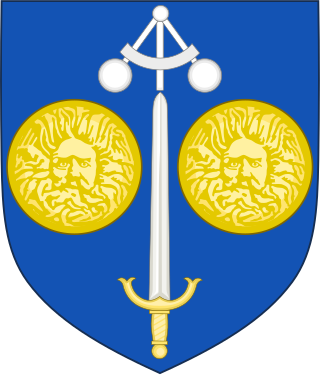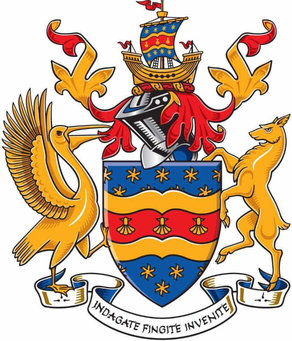Related Research Articles

A community college is a type of undergraduate higher education institution, generally leading to an associate degree, certificate, or diploma. The term can have different meanings in different countries: many community colleges have an "open enrollment" for students who have graduated from high school. The term usually refers to a higher educational institution that provides workforce education and college transfer academic programs. Some institutions maintain athletic teams and dormitories similar to their university counterparts.

The University of Bath is a public research university in Bath, England. It received its royal charter in 1966, along with a number of other institutions following the Robbins Report. Like the University of Bristol and University of the West of England, Bath can trace its roots to the Merchant Venturers' Technical College, established in Bristol as a school in 1595 by the Society of Merchant Venturers. The university's main campus is located on Claverton Down, a site overlooking the UNESCO World Heritage city of Bath, and was purpose-built, constructed from 1964 in the modernist style of the time.

The University of Plymouth is a public research university based predominantly in Plymouth, England, where the main campus is located, but the university has campuses and affiliated colleges across South West England. With 18,410 students, it is the 57th largest in the United Kingdom by total number of students.
The British undergraduate degree classification system is a grading structure for undergraduate degrees or bachelor's degrees and integrated master's degrees in the United Kingdom. The system has been applied in other countries and regions.

The Russell Group is a self-selected association of twenty-four public research universities in the United Kingdom. The group is headquartered in Cambridge and was established in 1994 to represent its members' interests, principally to government and Parliament. It was incorporated in 2007. Its members are often perceived as being the UK's best universities, but this has been disputed.
Three national rankings of universities in the United Kingdom are published annually, by The Complete University Guide, The Guardian and jointly by The Times and The Sunday Times. Rankings have also been produced in the past by The Daily Telegraph and Financial Times. UK Universities also rank highly in global university rankings with 8 UK Universities ranking in the top 100 of the three major global rankings: QS World University Rankings, Times Higher Education World University Rankings and Academic Ranking of World Universities.

The Higher Education Statistics Agency (HESA) was the official agency for the collection, analysis and dissemination of quantitative information about higher education in the United Kingdom. HESA became a directorate of Jisc after a merger in 2022.

Arts University Bournemouth is a further and higher education university based in Poole, England, specialising in art, performance, design, and media. It was formerly known as The Arts University College at Bournemouth and The Arts Institute at Bournemouth and is the home of Bournemouth Film School.
The Combined Universities in Cornwall (CUC) is a project to provide higher education in Cornwall, England, which is one of the poorest areas of the United Kingdom in terms of GVA per capita.
The golden triangle is the triangle formed by the university cities of Cambridge, London, and Oxford in the south east of England in the United Kingdom. The triangle is occasionally referred to as the Loxbridge triangle, a portmanteau of London and Oxbridge or, when limited to five members, the G5.
Graduate unemployment, or educated unemployment, is unemployment among people with an academic degree.
The National Student Survey is an annual survey, launched in 2005, of all final year undergraduate degree students at institutions in England, Scotland, Wales and Northern Ireland within the United Kingdom. The survey is designed to assess undergraduate students' opinions of the quality of their degree programmes, with seven different scores published including an "overall satisfaction" mark.
Peninsula College of Medicine and Dentistry (PCMD) was a Medical and Dental school in England, run in partnership with the University of Exeter, the University of Plymouth and the NHS in Devon and Cornwall. In January 2013 the school began disaggregation to form Plymouth University Peninsula Schools of Medicine and Dentistry and the University of Exeter Medical School.
QS World University Rankings is a portfolio of comparative college and university rankings compiled by Quacquarelli Symonds, a higher education analytics firm. Its first and earliest edition was published in collaboration with Times Higher Education (THE) magazine as Times Higher Education–QS World University Rankings, inaugurated in 2004 to provide an independent source of comparative data about university performance. In 2009, the two organizations parted ways to produce independent university rankings, the QS World University Rankings and THE World University Rankings.

The University of Nottingham is a public research university in Nottingham, England. It was founded as University College Nottingham in 1881, and was granted a royal charter in 1948.

The University of the Arts London is a public collegiate university in London, England, United Kingdom. It specialises in arts, design, fashion, and the performing arts. The university is a federation of six arts colleges: Camberwell College of Arts, Central Saint Martins, Chelsea College of Arts, the London College of Communication, the London College of Fashion and the Wimbledon College of Arts.

The University of Exeter is a research university in the West Country of England, with its main campus in Exeter, Devon. Its predecessor institutions, St Luke's College, Exeter School of Science, Exeter School of Art, and the Camborne School of Mines were established in 1838, 1855, 1863, and 1888 respectively. These institutions later formed the University of Exeter after receiving its royal charter in 1955. In post-nominals, the University of Exeter is abbreviated as Exon., and is the suffix given to honorary and academic degrees from the university.
The Teaching Excellence and Student Outcomes Framework (TEF) is a government assessment of the quality of undergraduate teaching in universities and other higher education providers in England, which may be used from 2020 to determine whether state-funded providers are permitted to raise tuition fees. Higher education providers from elsewhere in the United Kingdom are allowed to opt-in, but the rating has no impact on their funding. The TEF rates universities as Gold, Silver or Bronze, in order of quality of teaching. The first results were published in June 2017. This was considered a "trial year" and is to be followed by a "lessons learned exercise" that will feed into the 2018 TEF and longer-term plans for subject-level ratings.
Graduate Outcomes is a statistical survey of graduates from higher education courses in the UK. The survey attempts to contact all recipients of higher education qualifications approximately 15 months after graduation. It aims to gather statistics on the employment and study activities of graduates, and their subjective opinions on the value of their higher education and qualifications. The survey is delivered by HESA to help universities and colleges fulfil their legal requirement to report on the outcomes of higher education to the UK higher education funding and regulatory bodies.
References
- ↑ "DLHE sample questionnaire HESA" (PDF). Archived from the original (PDF) on 27 October 2010. Retrieved 5 May 2008.
- ↑ Destination of Leavers from HE Comparative Report, National Centre for Social Research, Feb 2008 Archived 13 November 2008 at the Wayback Machine
- ↑ University of Exeter Careers and Employment Service Annual Report for 2004/2005, accessed on 5 May 2008 "Archived copy". Archived from the original on 16 February 2007. Retrieved 5 May 2008.
{{cite web}}: CS1 maint: archived copy as title (link), - ↑ Supporting your university Did you complete your higher education qualification in 2002/03?, University of Plymouth, accessed 5 May 2008 Archived 26 April 2008 at the Wayback Machine
- ↑ "Unconfirmed minutes of the University of Manchester Senate Wednesday, 17 October 2007 (accessed 21 September 2019)".